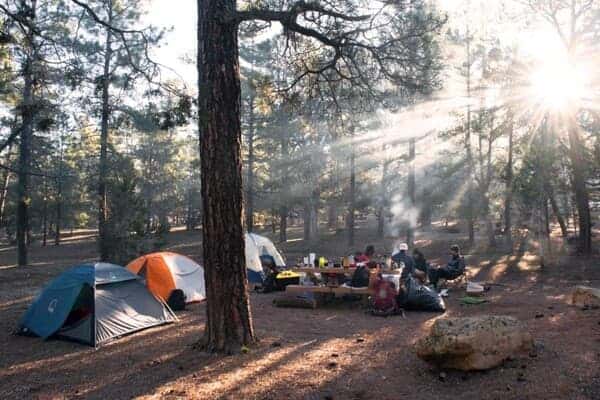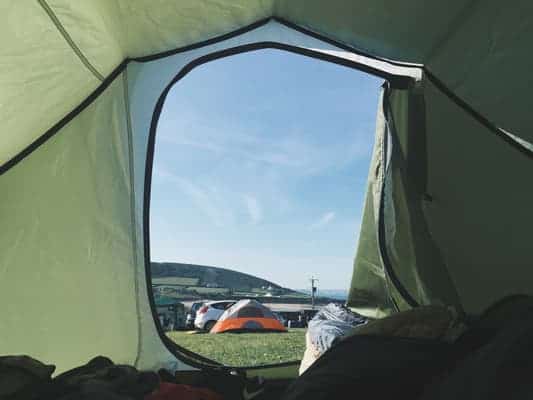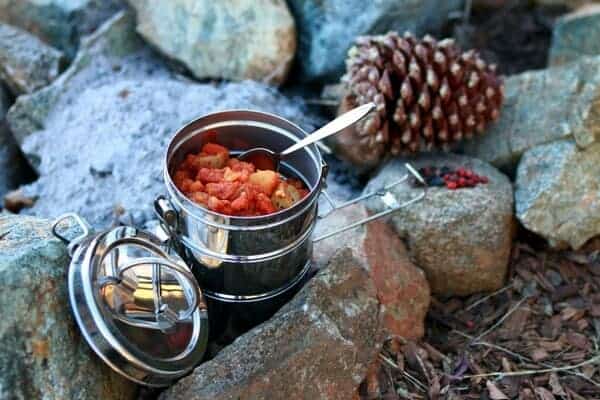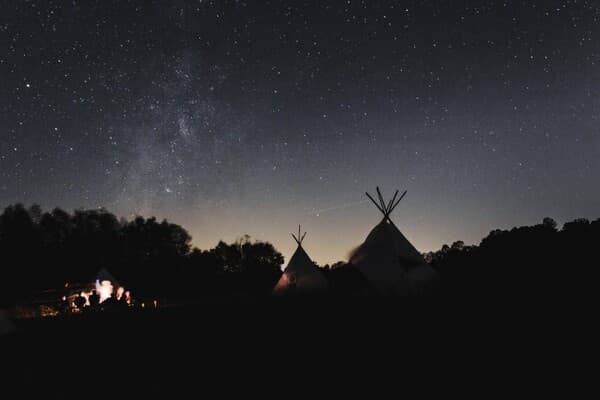Camping with kids is more than just setting up a tent and roasting marshmallows. It’s about teaching kids about the environment, instilling a sense of adventure, and creating lasting family memories. But how do you make camping with kids a fun and stress-free experience?
Why You Should Take Kids Camping

There are numerous reasons why you should consider camping with your kids. Let’s get into a few of them.
Benefits of Camping
Camping provides a break from the usual routine. It allows kids to appreciate the beauty of nature and enjoy simple pleasures. It’s a chance to see the stars away from city lights, hear the soothing sounds of the outdoors, and breathe in fresh air.
Life Skills Learned
Camping teaches kids important life skills such as problem-solving, teamwork, and resilience. It allows them to learn how to navigate with a compass, set up a tent, or cook over a campfire.
Preparing for Your Camping Trip

Preparing for a camping trip with kids is much like planning a small-scale expedition. You need to account for all possible scenarios, keep the children’s comfort in mind, and ensure everyone’s safety. Preparation involves selecting the right campsite, packing the necessary gear, and planning for meals. Taking the time to prepare thoroughly will make the camping trip smoother and more enjoyable for everyone.
Choosing the Right Campsite
The right campsite can make a significant difference in your camping experience. When camping with kids, consider a site that’s close to facilities like restrooms and showers, which will make hygiene tasks less daunting. The campsite should be flat and clear of debris for easy tent set-up and safe play area for kids.
Look for a campsite with recreational activities suitable for kids, such as a swimming area, hiking trails, or a playground. A good campsite is also one that’s not too isolated – being near other families can provide an added sense of security and the opportunity for your kids to make new friends.
Before you finalize a campsite, read reviews from other families who have stayed there, and don’t hesitate to call the site directly to ask specific questions. It’s crucial to ensure that the campsite is safe and kid-friendly.
Essential Gear to Pack
Packing the right gear ensures a comfortable and safe camping trip. The essentials include a sturdy, easy-to-assemble tent, warm sleeping bags, and a first-aid kit stocked with band-aids, antiseptics, tweezers, and any necessary prescription medications.
In terms of clothing, pack enough clothes to layer and deal with changes in weather. Include waterproof jackets and boots, hats for sun protection, and a change of clothes for unexpected spills or water activities.
Don’t forget to pack cooking gear, including a portable stove, pots and pans, utensils, and a cooler for food storage. And, of course, remember the marshmallow skewers for the all-important campfire treat!
When camping with kids, remember to pack items that would make them feel comfortable and entertained. This could be anything from their favorite blanket or stuffed animal to board games, books, and outdoor toys like frisbees or a soccer ball.
Planning for Meals

Meal planning is another crucial aspect of your camping preparation. You’ll want to choose meals that are easy to prepare and require minimal cleanup.
Consider pre-making some meals at home to make the cooking process quicker and easier at the campsite. Pre-made sandwiches, salads, or pasta dishes are great choices. Foods like hot dogs, burgers, and foil-wrapped veggies can be easily cooked over a campfire.
Snacks are important too, especially for hungry kids after a day of outdoor activities. Pack a good selection of fruits, granola bars, and trail mix. And, of course, don’t forget the ingredients for s’mores – they’re a camping classic!
Lastly, always carry plenty of water for drinking and cooking. Depending on the water quality at your campsite, you may also need to bring a water filter or purifying tablets.
Remember, the goal of your camping trip is to make enjoyable memories with your kids. With adequate preparation, you can focus on the fun parts of camping, knowing that you have everything you need.
Activities to Keep Kids Engaged
Creating a series of engaging activities is key to keeping your kids excited and enthusiastic during a camping trip. The goal is to make the outdoors fun, educational, and memorable. This involves choosing activities that are not only enjoyable but also help children learn and appreciate nature.
Nature Walks
Nature walks are a fantastic way to immerse kids in the outdoors. These walks allow kids to observe different plant species, insects, and animals in their natural habitats. Encourage them to listen to the sounds of the forest, the rustling leaves, the chirping birds, and the babbling streams.
To make these walks even more engaging, consider turning them into a nature scavenger hunt. Provide them with a list of things to find, such as a certain type of leaf, a rock of a specific color, or a bird’s nest. This not only encourages exploration and observation skills but also keeps them actively engaged in the walk.
Star Gazing

Camping provides a unique opportunity to observe the night sky away from city lights. With clear skies, you and your children can spot numerous stars, planets, and constellations.
Teach your children how to identify popular constellations like the Big Dipper or Orion’s Belt. Consider bringing a star chart or downloading a stargazing app to help guide your night sky exploration.
Make it a magical experience by laying down a blanket and sharing stories about the stars and the universe. This not only cultivates an interest in astronomy but also creates beautiful memories under the stars.
Campfire Storytelling
A camping trip isn’t complete without storytelling around the campfire. This age-old tradition is a wonderful way to wind down at the end of the day, enjoy the warmth of the fire, and bond as a family.
You could share classic camping stories, tales from your own childhood, or even fictional tales about the woods around you. Encourage your kids to share their stories too, or perhaps make up a collaborative story where each member contributes a part.
Campfire storytelling not only stimulates creativity and imagination but also provides a comforting and warm end to a day filled with outdoor adventures.
Each of these activities can be adjusted based on the age and interests of your children, and all contribute to an unforgettable camping experience filled with fun, learning, and family bonding.
Ensuring Safety While Camping
Camping offers a thrilling sense of adventure, but it’s essential to keep safety as a top priority. The presence of unpredictable elements like weather, wildlife, and rough terrain requires that campers take necessary precautions to avoid potential hazards. This involves educating your children about basic first aid and wildlife awareness.
First Aid Tips For Kids
When you’re out in the wilderness, it’s vital to know basic first aid. In case of small accidents or injuries, knowing what to do can make a significant difference. Teach your kids some of these essential first aid skills:
- Wound Care: Teach them how to clean a cut or scrape with water and apply a bandage.
- Splinter Removal: Show them how to remove a splinter with tweezers.
- Insect Bites or Stings: Teach them to recognize insect bites or stings and apply cream or a cold pack to soothe the area.
Remember to pack a comprehensive first aid kit. This should include bandages of various sizes, antiseptic wipes or creams, tweezers, medical tape, sterile gloves, a digital thermometer, and any necessary prescription medications.
Kids Wildlife Awareness
Teaching kids about wildlife is not only fascinating but also crucial for their safety. Explain that while animals in the wild are beautiful to observe, they should always be viewed from a safe distance.
Instruct your children never to feed wild animals as it can encourage harmful behavior from the animals and is often unhealthy for them. It’s also important for children to understand that they should never attempt to touch or pet wild animals, no matter how cute they may seem.
Make sure they know what to do in case they encounter a large animal. The appropriate response can vary depending on the animal species, so research the wildlife in the area where you’ll be camping and prepare your children accordingly.
Emphasize the importance of keeping the campsite clean to avoid attracting wildlife. This includes properly storing food and disposing of trash in designated containers or bags.
Safety while camping is paramount. By teaching your children about first aid and wildlife awareness, you’re equipping them with the knowledge that will help ensure a safe and enjoyable camping experience.
Post-Camping Reflections
Reflecting on the camping experience can help instill a deeper love for nature in your kids.
Encouraging a Love for Nature
Talk about the wonders of nature experienced during the trip. Encourage your kids to share their favorite parts.
Lessons Learned
Discuss any challenges encountered and how you overcame them as a family. It’s a great way to learn and grow together.
FAQs – Camping With Kids
What Is the Best Age to Start Camping With Kids?
You can start camping with kids as young as 4 or 5. They are usually able to enjoy and remember the experience at this age.
How Can I Make Sleeping in a Tent Comfortable for My Kids?
Bring comfortable sleeping bags and extra blankets. A familiar comfort item like a favorite pillow can also help.
What If My Little One Is Afraid of the Dark?
Try to normalize the dark. Bring along night lights and keep a flashlight handy. Turning the situation into an adventure can also help ease their fear.
What Are Some Kid-Friendly Meals for Camping?
Hot dogs, burgers, grilled cheese, and pre-made sandwiches are good options. Don’t forget marshmallows for roasting!
Wrapping Up Camping With Kids
Camping with kids offers an incredible opportunity to create lasting memories, deepen family bonds, and foster an appreciation for nature. The process may seem daunting, especially regarding keeping the little ones engaged and ensuring their safety. But with careful planning, preparation, and a spirit of adventure, it can become one of the most rewarding experiences for the entire family.
From selecting a suitable campsite and packing the right gear to organizing engaging activities and teaching safety measures, each aspect plays a significant role in shaping a successful camping trip. So take the time to prepare, pack, and plan, and look forward to the amazing outdoor adventures that await.
Remember, it’s about making the most of your time outdoors with your children, soaking in the beauty of nature, and learning together.
